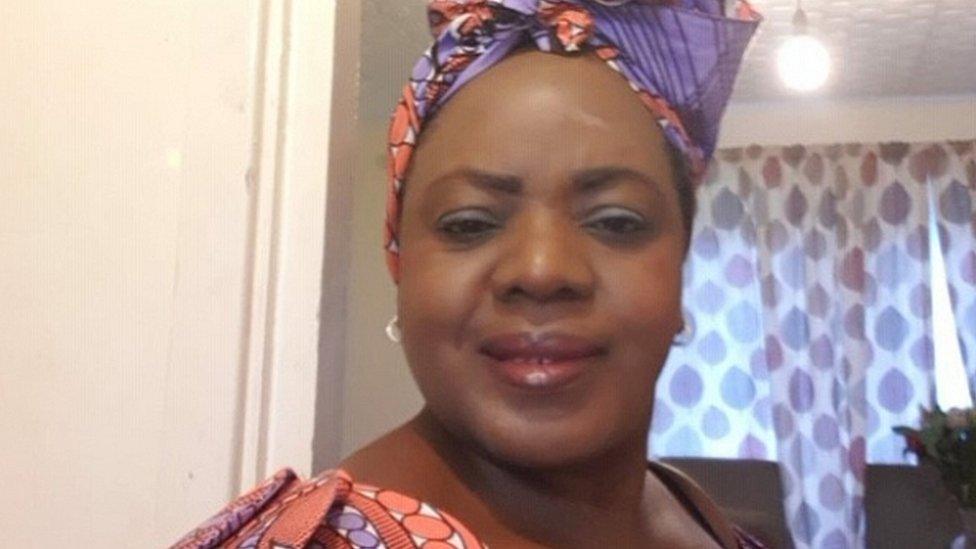Belly Mujinga: Rail worker's inquest will be held this summer
- Published
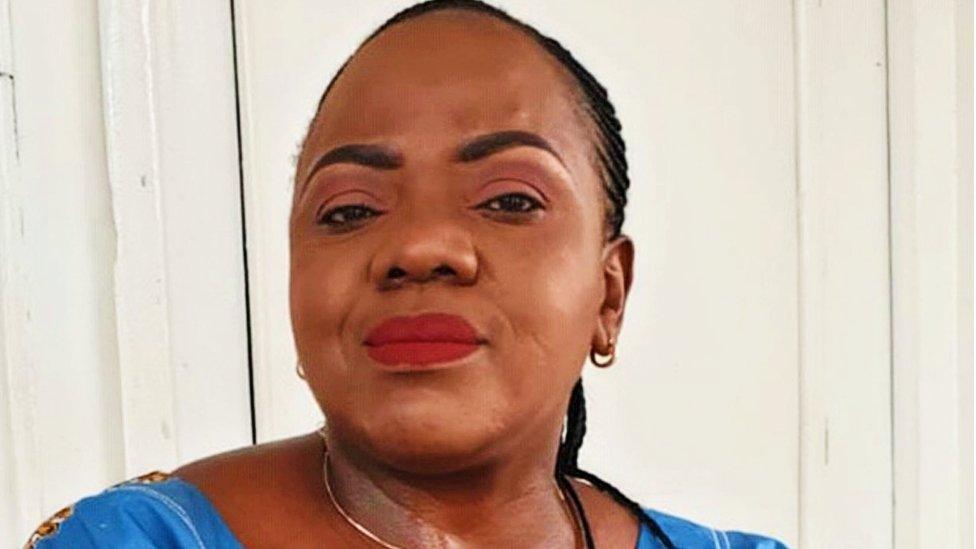
Belly Mujinga died with Covid in April 2020
The inquest of railway station worker Belly Mujinga will be held in June, two years after her death, a coroner has confirmed.
Mrs Mujinga, 47, died in 2020 with coronavirus after she was reportedly coughed on and spat at by a passenger.
Andrew Walker, senior coroner for North London, said the inquest would start on June 27 and last for up to seven days.
Mr Walker had already apologised to the family for the delays.
During the 35-minute hearingin Barnet, Mr Walker said an independent scientific expert specialising in diseases would be brought in ahead of the inquest, to help identify the issues to be explored and the witnesses potentially required to give evidence.
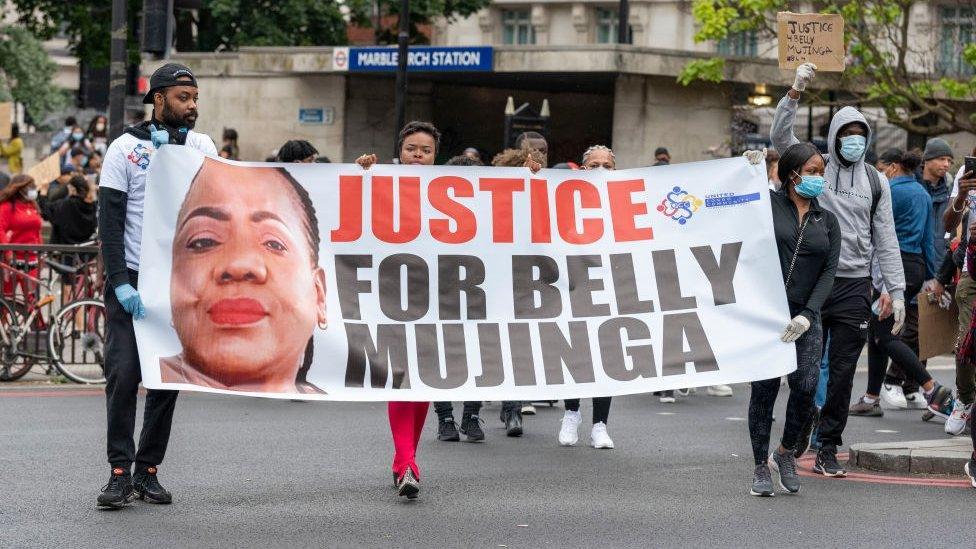
Mrs Mujinga's death prompted an outpouring of grief and demand for answers
Mrs Mujinga, 47, died with coronavirus on April 5 2020, days after she was reportedly targeted by a customer at London's Victoria station.
Her husband, Lusamba Gode Katalay, and daughter Ingrid were two of only 10 people permitted at her funeral due to coronavirus restrictions.
British Transport Police (BTP) interviewed a 57-year-old man over the incident, which allegedly happened at London Victoria in April 2020, but said there was not enough evidence that a crime had taken place.
More than two million people signed a petition in support of Mrs Mujinga and activists marched for "justice for Belly Mujinga".
BTP later requested that the Crown Prosecution Service (CPS) carry out an independent review of the case in light of the "wider public interest".
Suzanne Llewellyn, deputy chief crown prosecutor, said "enhanced CCTV, forensic materials and witness statements" had been studied to look at whether homicide, assault or public order charges could be brought but the footage was not sufficiently clear.
Mrs Mujinga was originally from the Democratic Republic of the Congo, where she was the first female sports journalist to work for the national broadcaster RTNC, her family said. She moved to the UK in 2000.

Follow BBC London on Facebook, external, Twitter , externaland Instagram, external. Send your story ideas to hellobbclondon@bbc.co.uk, external
- Published7 May 2021
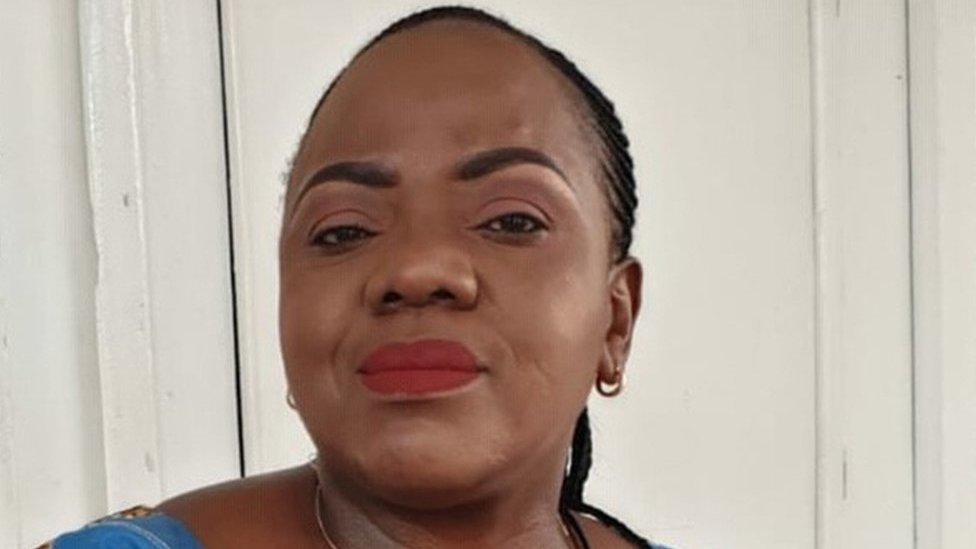
- Published7 January 2022

- Published13 October 2020
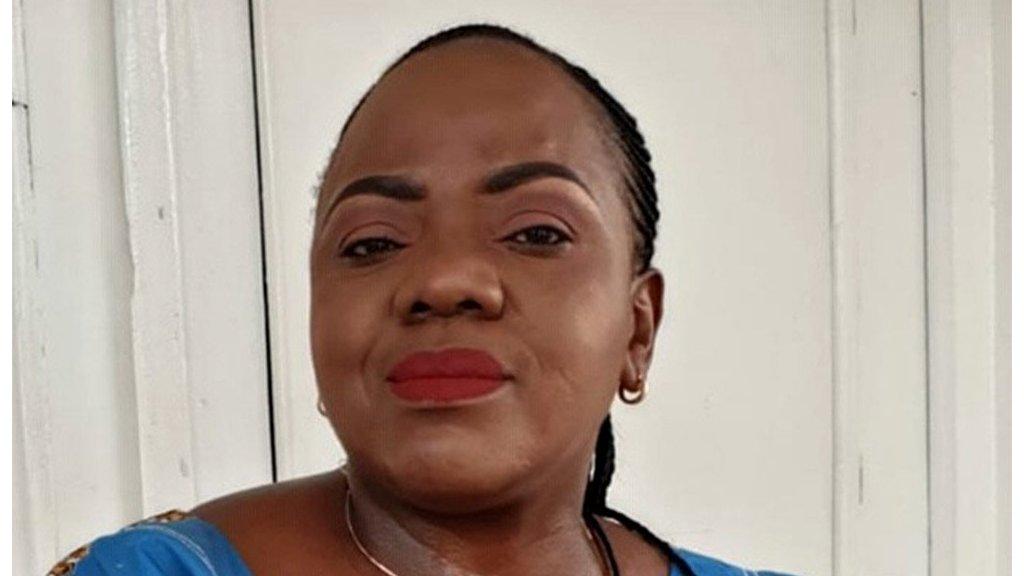
- Published16 September 2020
